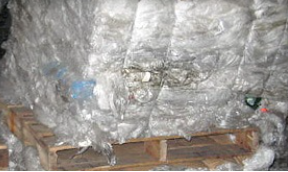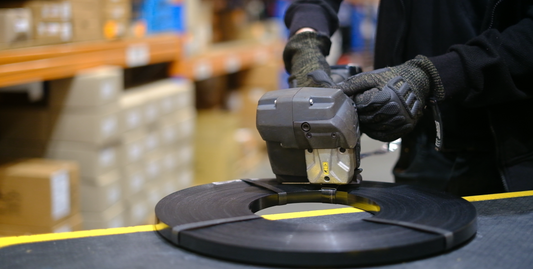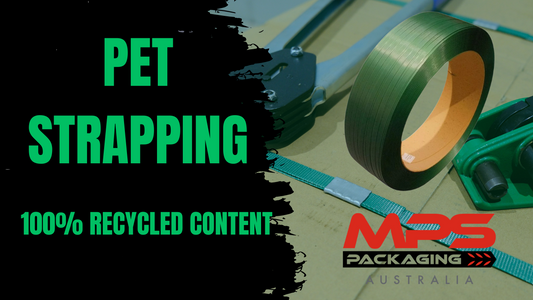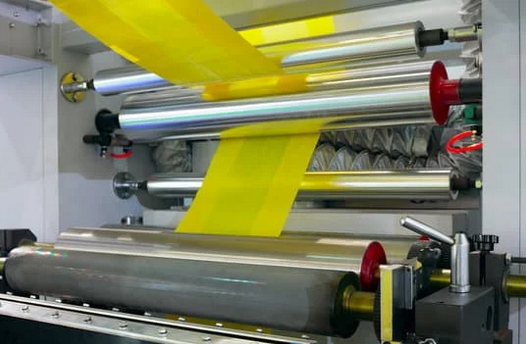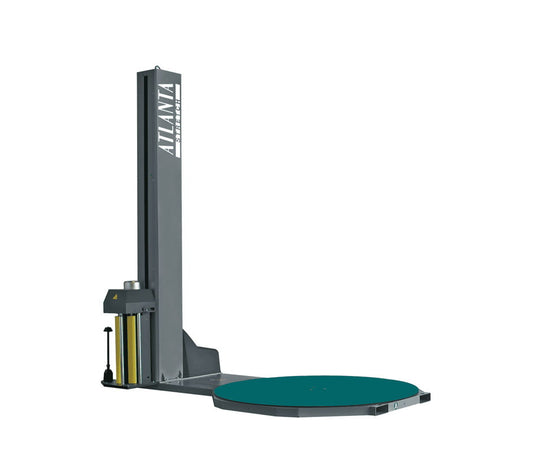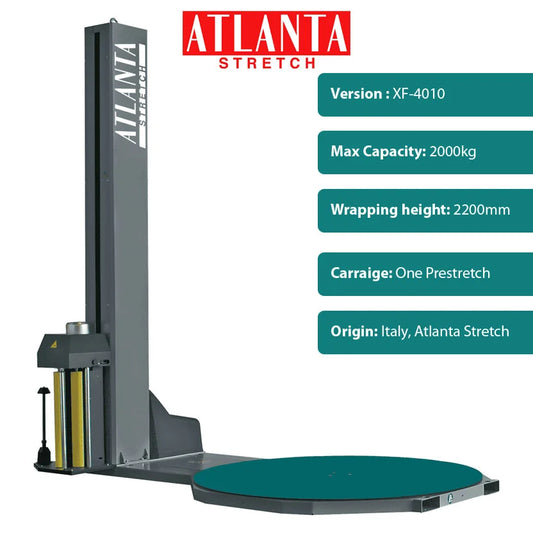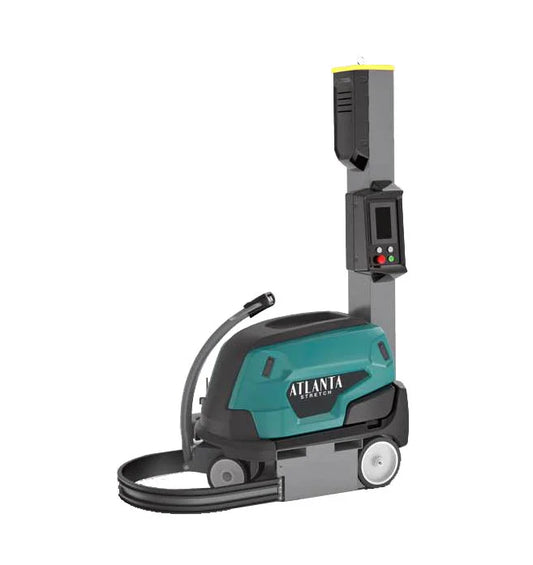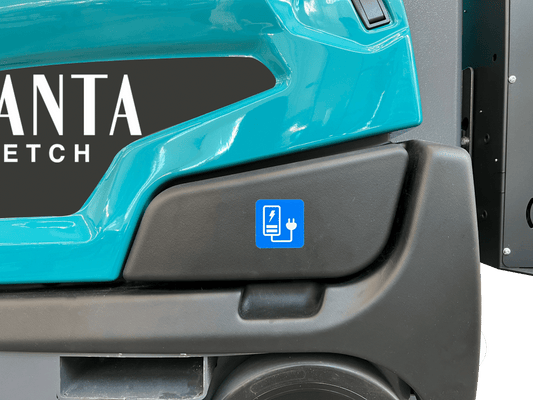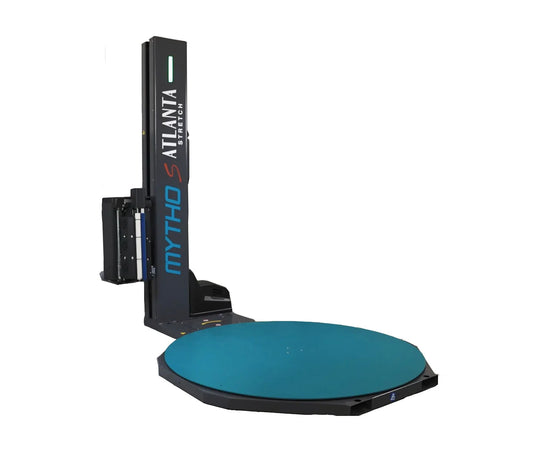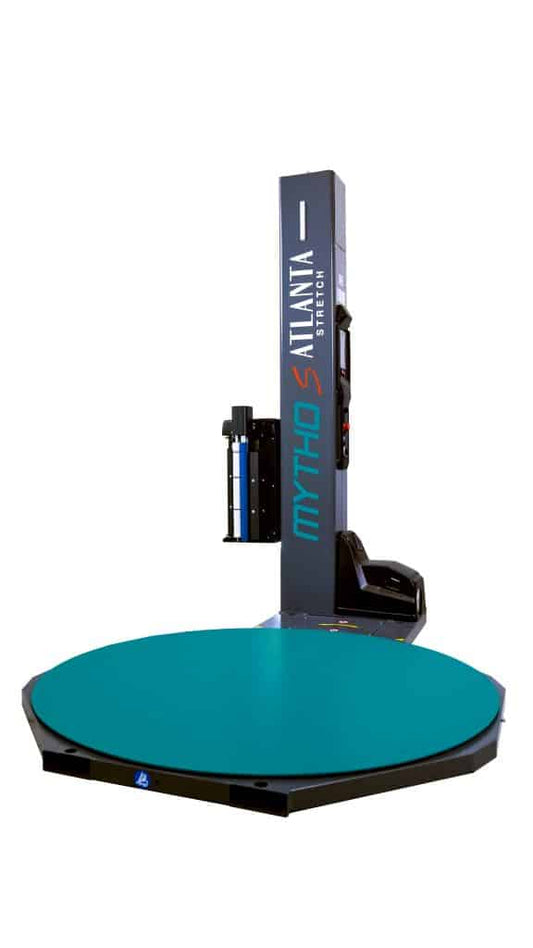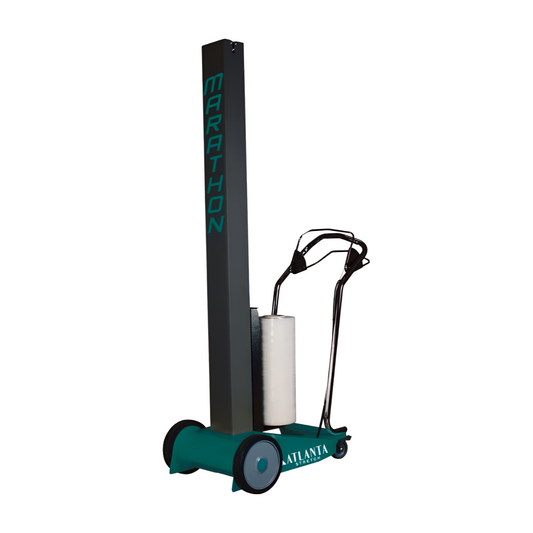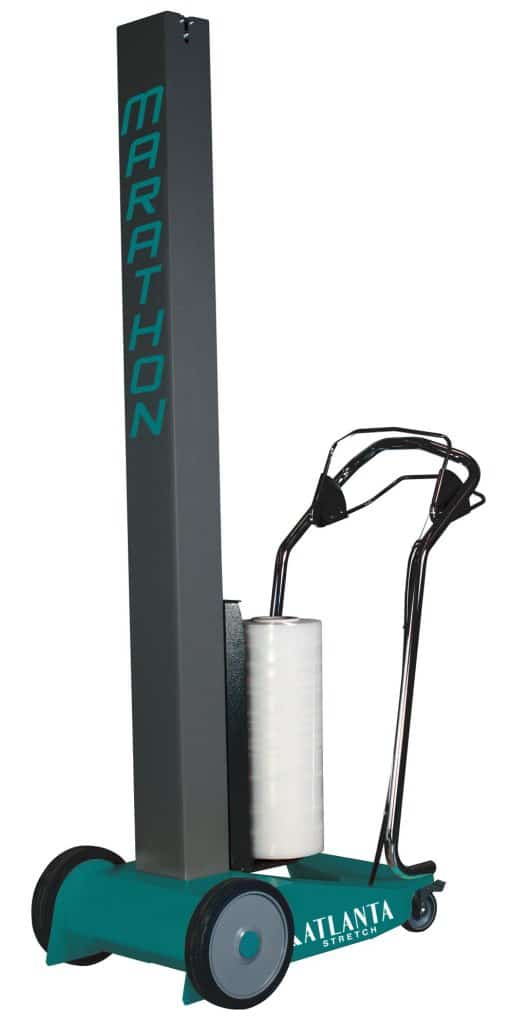If you've been wondering whether pallet stretch wrap can be recycled, the short answer is yes! Pallet wrap is made from LDPE (low-density polyethylene), a recyclable plastic - but it's only recyclable under the right conditions.
Before you toss it in the bin, here’s what you need to know about how to properly recycle LDPE plastic and the challenges involved.
What is LDPE?

LDPE (Low-Density Polyethylene) is a type of plastic widely used in pallet stretch wrap, shopping bags, flexible bottles, and dry-cleaning bags. It’s classified as a Type 4 plastic, meaning it can be recycled, but not all council recycling programs accept it.
Similarly, LLDPE (Linear Low-Density Polyethylene) is also a Type 4 plastic, but most consumer recycling programs won’t accept it—making it more difficult to recycle through standard methods.
How to recycle LDPE pallet stretch wrap
If your local recycling program accepts LDPE, follow these steps to ensure your stretch wrap gets recycled properly:
- Remove contaminants – Make sure the pallet wrap is free from food scraps, receipts, labels, and tape. Contaminants can ruin the recycling process.
- Scrunch the plastic – LDPE is thin and flexible, so scrunch it into a ball to make it easier to handle.
- Place it in a bag – This prevents it from clogging up recycling machinery.
- Find a drop-off centre – Check with your local council or recycling facility to see where LDPE can be recycled.
If you’re in Victoria, check your vic council’s website for recycling guidelines.
MPS Packaging’s LLDPE pallet wrap recycling program
Recycling LLDPE pallet stretch wrap can be challenging because most council recycling services don’t accept it. But MPS Packaging Australia has a dedicated recycling program that makes it easy for businesses to recycle their pallet wrap responsibly.
To participate, simply:
- Remove all contaminants – This includes tape, paper, labels, dirt, and any other materials. Only clean LDPE stretch wrap can be recycled.
- Bale the plastic – Hand-squashing or stuffing it into a bag isn’t enough. It must be machine-pressed into bales.
- Deliver it to our recycling centre in Dandenong – Businesses must cover transport costs, but this ensures a sustainable solution for recycling LLDPE.
What if your local recycling program doesn’t accept LDPE?
If LDPE isn’t accepted in your area, there are a few other options:
- Reuse it – Many businesses repurpose pallet wrap for storage, packing, or protective layering.
- Find a specialist recycler – Some waste management companies or recycling centres specialise in LDPE plastics.
- Dispose of it properly – If no recycling options are available, general waste may be the only choice. While not ideal, this prevents litter and pollution.
Why isn’t all LDPE recycled?
There are a few reasons why LDPE pallet stretch wrap isn’t always accepted in council recycling programs:
- It clogs recycling machinery – Thin plastic film can jam standard sorting equipment, making it difficult to process.
- Local council policies vary – Some regions don’t have the infrastructure to handle LDPE recycling.
That’s why specialist recycling programs like MPS Packaging’s are essential for businesses looking to manage their plastic waste responsibly.
Ways to reduce plastic waste in pallet wrapping
Recycling is great, but reducing plastic use in the first place is even better. Here are a few ways to cut down on pallet wrap waste:
- Use high-performance stretch film – Down-gauging to a thinner but stronger pallet wrap reduces plastic use per pallet.
- Invest in a powered pre-stretch pallet wrapper – These machines use at least 30% less film compared to standard wrappers, significantly cutting down on waste.
Why recycling is more sustainable than composting plastics
Plastic waste is a major environmental issue, and while composting is a great solution for organic waste, it doesn’t work for plastics. Recycling is a far better solution for plastic waste management.
The problem with composting plastics
- Standard plastics don’t decompose in composting environments.
- Compostable plastics aren’t designed for recycling and can contaminate recycling streams.
The benefits of recycling plastics
- Reduces landfill waste – Recycling diverts plastic from landfills, where it can take centuries to break down.
- Saves energy – Producing plastic from recycled materials requires less energy than using virgin materials.
- Supports a circular economy – Recycling plastic keeps materials in use for longer, reducing demand for new plastic production.
How plastic recycling works: Mechanical vs. chemical recycling
There are two main ways plastics are recycled: mechanical recycling and chemical recycling.
Mechanical recycling (the most common method)
Plastics are sorted, cleaned, shredded, melted, and reformed into new products.
- Pros: Low energy consumption, cost-effective.
- Cons: Plastic quality degrades over time, contamination can cause problems.
Chemical recycling (advanced recycling)
Uses pyrolysis, gasification, or solvolysis to break down plastics into their original monomers.
- Pros: Creates high-quality recycled plastics, can process mixed plastics.
- Cons: Energy-intensive, high processing costs.
Both methods play a role in managing plastic waste, but mechanical recycling is the most widely used for LDPE pallet wrap.
Complementary Roles in Waste Management
While mechanical and chemical recycling have distinct processes and benefits, they are not mutually exclusive. In fact, they can complement each other in a comprehensive waste management strategy. Mechanical recycling is suitable for high-quality, uncontaminated plastics, whereas chemical recycling can handle mixed or contaminated plastics that are challenging to process mechanically. Integrating both methods can enhance recycling rates and material recovery, contributing to a more sustainable circular economy.
The smarter way to recycle pallet wrap
By joining MPS Packaging’s recycling program, businesses can actively reduce their environmental impact while ensuring plastics are repurposed efficiently.
Make the switch to recycling today and take a step towards a more sustainable future. With MPS Packaging’s support, your business can lead the way in reducing plastic waste, conserving resources, and protecting the environment.
Contact us today to find out how to participate in our pallet wrap recycling program!

